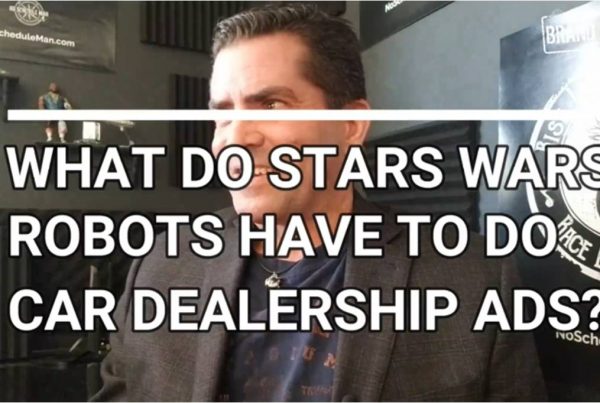I’ve been fortunate to get to know a great many interesting and inspiring people. I’m grateful to have learned a lot from each of them.
One of those people is Kyla Woodcock.
Kyla is the founder of the Forest City Sport & Social Club, a co-ed, recreational sports league designed to bring people together for fun, to meet new friends, and to stay fit while giving back to the community. Built upon Kyla’s vision and values, the club has been an amazing hit, and has since expanded to Windsor (Rose City Sport & Social Club).
From the moment I met her, I’ve admired Kyla. When I talk with Kyla, I find myself both wanting to learn from her and to try and find a thought to challenge her. I am always interested in what she will say or do next. And I am never disappointed.
Kyla’s story fascinates me. In telling parts of it, she relates some powerful perspective that any entrepreneur should find valuable. As I listened to her talk about her journey, I caught myself on numerous occasions thinking, “People need to hear/see this.” And now they can.
Here is my conversation with Kyla Woodcock:
KB: Where were you professionally before you even started to get the seeds of the idea for FCSSC?
Kyla: My background is in business and human resources. I worked for a large corporation in the technology industry until the bubble burst in the early 90’s.
It found it relatively easy to find a really great HR job really early in my career and I immediately started traveling with that company, and other companies within the industry, because everything was going so fast in tech at the time.
I moved all over the country with those tech companies doing HR stuff and then, the classic story, I became completely exhausted of that life after about 7 or 8 years, being early in my own professional story and moving around incessantly. I was never close to family and I missed every birthday party and I wasn’t married and I didn’t have any kids and I was pushing 30 years old and thinking, “I’m not doing this anymore. I’m tired.”
When the tech industry experienced a significant downturn I had to severance a whole bunch of people out of work. In HR, that was my job I wrote myself a package too. I just said, “I’ve had enough.”
KB: What was going through your mind and heart at that time?
Kyla: I was exhausted. I saw the opportunity. I knew the company had to decrease the payroll and I knew that we didn’t need another HR person to do the recruiting, performance manage and compensation strategy because we just lost the 500 people for whom that HR person was responsible.

The Forest City Sport & Social Club (FCSSC) exists to improve the quality of life for adults in London through fun, friends, fitness and connection to our community.
KB: When, along that timeline, did what has turned into FCSSC start to germinate as an idea, let alone a business plan?
Kyla: There was a period in the early days of my career in HR that I actually got to settle at the head office of one of the companies I worked for and that was in Ottawa. And so I started to invest a bit into a local lifestyle.
It was just pure, off the clock play time. It was what I really needed and I found when I joined the sport and social club. And I became friends with Nicki, the woman who started the club in Ottawa. Her story was not dissimilar to mine. She started her cub having leaving the tech industry. She was a couple of years ahead of me. We’re still friends to this day.
KB: So was it that time that the thought came to you, “Maybe I can do something like this in another market?”
Kyla: It wasn’t until after I took time off. I left the corporate job that I was in, and then I traveled for over a year. I just didn’t work at all. I sold my house and everything in it. I literally put clothes in a backpack and started traveling. I traveled through the South Pacific mostly.

FCSSC donated over $7,000, along with countless equipment donations, to various local charities in 2014 alone.
KB: You did that by yourself?
Kyla: By myself. And I met fabulous people along the way. Totally fabulous people.
And then I came home because my grandfather passed away. I had intentions of going back overseas. I wasn’t sure I was done traveling; I still wanted to see more; I didn’t really want to get another job and I was fortunate because I still had a little bit left in the bank. The plan was always to spend it until it was gone and I still had countries on the list and so I was going to go back. But I didn’t.
I got home and I reconnected with my family during that stay at home and realized there was too much I was missing out on.
KB: What did you learn about yourself that that time?
Kyla: Oh. What didn’t I learn about myself? I took a lot of my identity from who I was in the corporate world and what people recognized me as being good at. I was chasing that next great big title and I was needing to be at the boardroom table and part of every corporate decision because that made me valuable and important. And then when I stepped away from all of that, I realized that’s not how I needed to be important.
Being important for me is being there for my husband and kids, parents and my siblings. That’s being important. Being there for my friends and being somebody that people can rely on. Being in the big chair at the boardroom table … I don’t care about that anymore.
KB: And at that time, at that point in your life, you’re doing what you just think that you’re supposed to be doing.
Kyla: Yeah! Everybody always said, get a great job and get out there and work and it’s all about realizing your earning power and putting your degree to work. You spent thousands of dollars at university: do something with that. You know?.
KB: So you end up doing everything that you’re “supposed” to do and you wind up exhausted and empty.
Kyla: Something like that.
KB: I’d like to talk a little bit about FCSSC.
Kyla: Sure!
KB: Fast forward then to how that came together and why?
I still had ambitions to finish schooling. I had an undergrad degree but I’d always wanted my Masters in business and I decided that I was going to make time for that. So I went to Ivey and did my MBA (Masters in Business Administration) there and when I graduated, I didn’t want to do what I’d always done. It didn’t make sense to me that that was a good use of the investment in my education. I wanted to do something else.
I come from a long line of entrepreneurs. My dad is an incredibly successful entrepreneur. So is my mom. My stepdad is a successful entrepreneur too. I wanted to try. And that’s where the club came from. The club was my entrepreneurial attempt that was perfectly fitted to the lifestyle that I wanted for myself.
I wanted connection to my community and I wanted more fun factor in my life. I wanted the chance to meet really great people every single day and I wanted to be in a business that naturally had the opportunity to do good. The club ticked all of those boxes, so it was an absolute no-brainer.
KB: You’ve just had your 5th anniversary, which is fantastic. Congratulations.
Kyla: Thank you.
KB: Where are you hoping to go from here?
Kyla: Wherever the membership of the club wants us to go. If they want a new sport, then we’re going to work on getting them a new sport. If they want a huge party or event once a year, then let’s get a huge party event once a year. If they want 50 partners in the network of the Forest City Sport & Social Club then we’ll work on 50 partners in the network. The club is a member-based organization and what we set our sights on as the organizers of the club is directly related to what the members are telling us they want the club to be and do. So I don’t dictate that. We plug in and respond.
KB: And it sounds like you’re trying to manage that organically, as opposed to go back to what you experienced in the tech world, where it got too far out ahead of itself and fell in. So the growth, doing it at the right speed, is important.
Kyla: Yes. Absolutely true. We’ve had lots of ideas for different things that we haven’t actually done. And we don’t flip the switch on those ideas because it’s maybe not what the membership is looking for from us at that point in time.
KB: That’s a valuable lesson that I wish I could go back and teach my 20 and 30-something year-old self.
Kyla: Yeah.
KB: Just because you have a card in your hand doesn’t mean now’s the time to play it.
Kyla: That’s right. And for us, that’s absolutely true.
At the same time, we have the ability, for example, to expand the concept to other markets. There are lots of cities near and far from here that don’t have a sport & social club. And the joy of creating it for me, making those connections and bringing rays of sunshine to the people in those communities when they come and play with us once a week, when we take them off the clock and we give them that carefree play time, I take a lot of pride in that and I think it’s super cool that that’s my work.
[youtube https://www.youtube.com/watch?v=tkAJ3T_eNRY]









Recent Comments